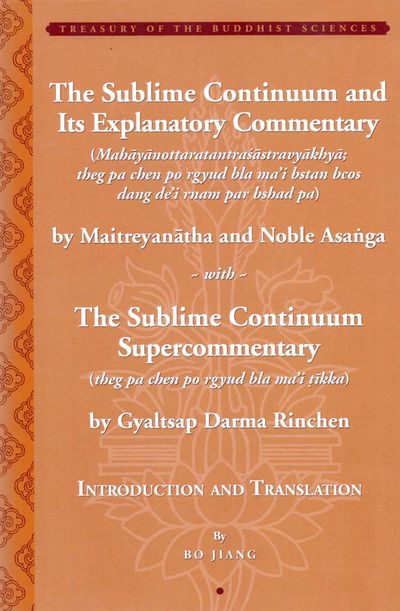- Editor's/Series Editor's Prefaceix
- Author's Preface and Acknowledgementsxv
- Abbreviations, Sigla, and Typographical Conventionsxvi
- Author's Preface and Acknowledgementsxv xvi
- Part One: Introduction
- 1. Introduction to The Sublime Continuum and Its Commentary 3
- 2. Introduction to Gyaltsap's Supercommentary 17
- Part Two: Translations
- Maitreyanatha's Sublime Continuum and Noble Asanga's
- Part One: Introduction
Commentary
- I: Tathagata Essence 53
- II: Enlightenment 145
- III: Excellences 159
- IV: Enlightened Activities 166
- V: Benefit 184
- Gyaltsap's Supercommentary
- Introduction 193
- I: Tathagata Essence 205
- II: Enlightenment 479
- III: Excellences 511
- IV: Enlightened Activities 524
- V: Benefit 555
- Appendix
- Tibetan Names (Phonetic-Transliterated Equivalents) 570
- Selected Bibliographies
- Indexes


